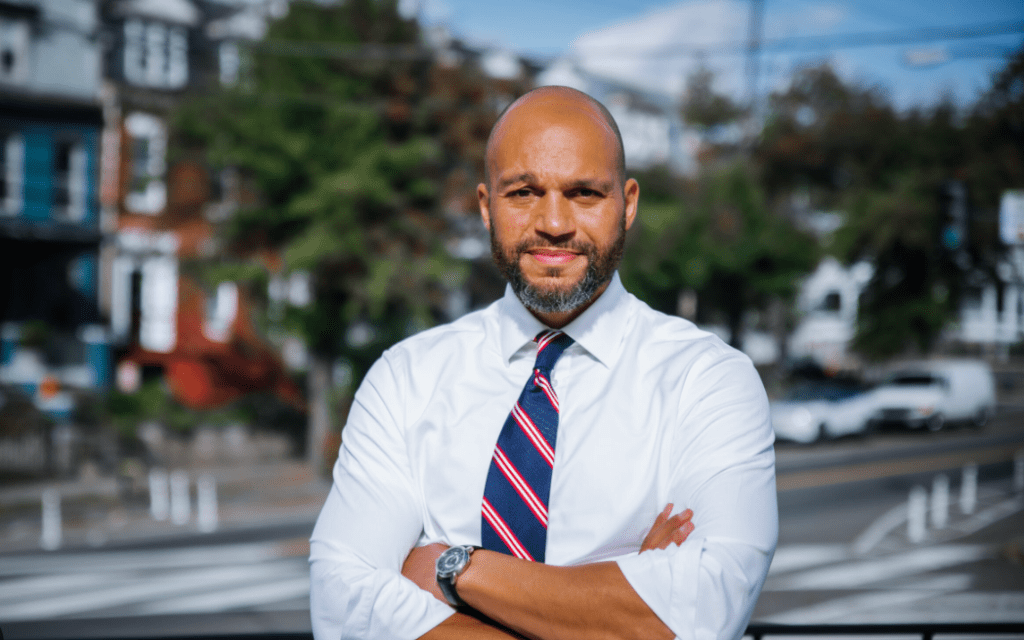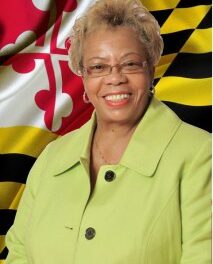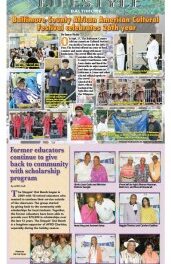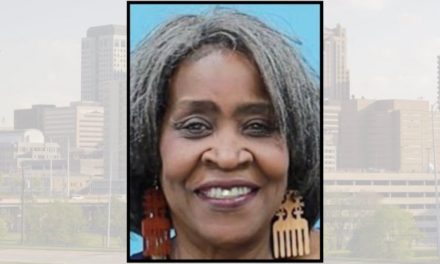By Gene Lambey
Special to the AFRO
The District of Columbia has seen a decrease in social workers throughout the city. At a time when crime is at an all-time high, prices are increasing due to inflation and a lack of affordable housing, D.C. residents are stuck in a position where they lack resources and desperately need support.
The D.C. Council passed a bill called the Pathways to Behavioral Degrees Act in early November, which provides free Master’s in Social Work programs to graduate students from the University of the District of Columbia (UDC).
These programs will give graduates with a degree in social work the opportunity to start working with social work services held within the D.C. Government.
This bill was first proposed by D.C. Councilmember Robert White (D-D.C.-At-Large). He was backed by support from other Council Members such as Councilmember Kenyan McDuffie (D-D.C.-At-Large), Councilmember Brooke Pinto (D-D.C.-Ward 2) and Councilmember Vincent Gray (D-D.C.-Ward 7).

White said the program is aimed at “helping reduce homelessness, helping public safety” and ensuring that “more mental health professionals available to the general public who need them.”
“My hope is that once this program is established, it can expand outward to other universities. Then expand it down, making undergraduate studies free as well for people who go on to become mental health professionals serving the District of Columbia.”
The goal of this bill was to not only create opportunities for graduate students to gain experience in their respective field, but to increase the number of social workers, counselors and mental health professionals within the District of Columbia.
“We will require them to serve three years working for one of our government agencies like homeless services, or in our schools, working for the local non-profit that does work critical to the District like violence interrupters and homeless service organizations. They will have to give three years of service to those fields in the District of Columbia.”
The program is also open to eligible D.C. residents and people that are currently working in D.C. Further requirements for this program include graduate students already having at least three years of experience at any D.C. school, health provider, or a non-profit organization within D.C. Government guidelines.
District residents want to help their communities on issues from housing to gun violence protection. Funding the new program and these scholarships will enable community members to step into these roles.
D.C. Councilmember Robert White (D-D.C.-At-Large)
The program is set to be active in 2025 at UDC and will be accessible to 20 students for the first year of the Master’s in Social Work program and will increase to 40 the next year and beyond.
“District residents want to help their communities on issues from housing to gun violence protection. Funding the new program and these scholarships will enable community members to step into these roles, ” Councilman White shared in a statement on May 3.
This bill would address issues such as the case worker shortage for housing, covering the increase on violence, trauma and crime and would fill the gap of vacant behavioral health specialists within D.C. public schools and programs.
The bill will provide UDC graduate students with free tuition, books and a monthly stipend for transportation and living space. This consists of a six million dollar budget over four years.
“When I spoke with unhoused residents who were getting cleared out of the McPherson Square encampment, many told me they’d been approved for a housing voucher but have waited for months, even years, to get moved through the final steps in D.C.’s voucher process.”
Councilman White has put forth another bill called the Social Work Modernization Amendment Act, which removes the limitation for social workers to continue their practice without taking the examination for their social work license.
Connecting with the Pathways to Behavioral Health Degree Act, UDC graduate students practicing social work will not need to take the license exam if the bill is passed. However, across the United States, licensure is a requirement in a large majority of states. The level of the exam is based solely on which degree the social worker completed in their study through their respective college or university.
White says the Social Work Modernization Amendment Act connects back to the Pathways to Behavioral Health Degree Act.
“We have such an incredible backlog or number of vacancies for social workers and mental health professionals and what I’m trying to do is get at the root of that issue,” White told the AFRO.
White believes that one of the main issues he covered in the Pathways to Behavioral Health Degree bill is making the program accessible and free to UDC graduate students pursuing their master’s degree.
The bill clears another issue which solves the “staggering number of people of color who are not passing the social work licensure exam.”
In Councilman White’s statement to the AFRO, he shared his desire to use the Social Work License Modernization bill to remove the examination “which is one of many requirements to get a license” to practice social work.
“This exam comes after many years of formal training, after 700 to 900 hours of supervised clinical work.”
He mentioned that the licensure examination carries a racial and age bias. This, in particular, hurts people of color, old and young who are striving to work in the social work field. White stated that there is no connection between passing the examination and becoming a competent practitioner.
White believes that individuals that are interested in social work and have gone through years of experience already are more than qualified to work in D.C. departments where there is a great need for social workers throughout the city.
The post Exclusive: Councilmember Robert White discusses racial barriers to social work in the District appeared first on AFRO American Newspapers.










